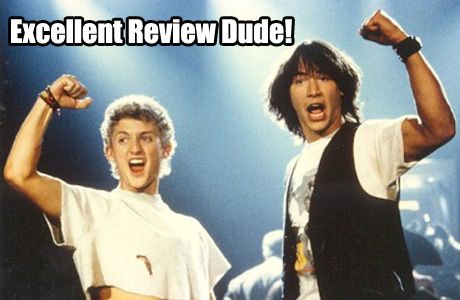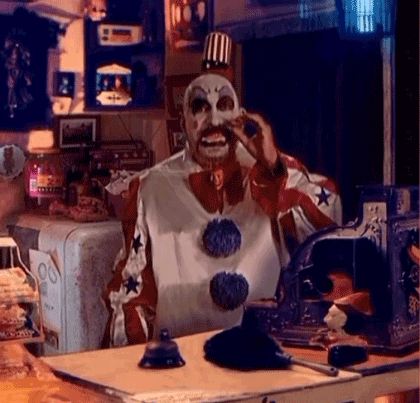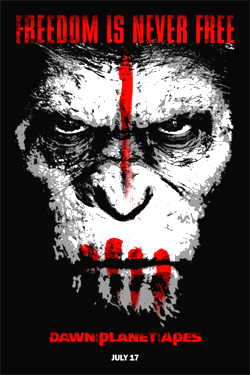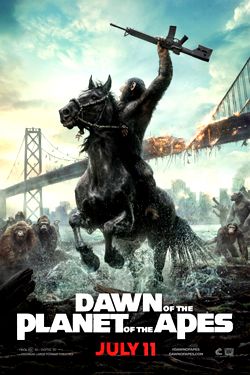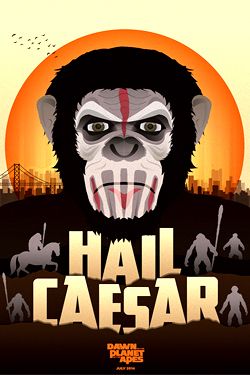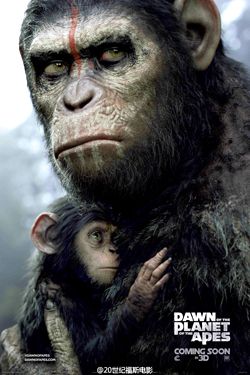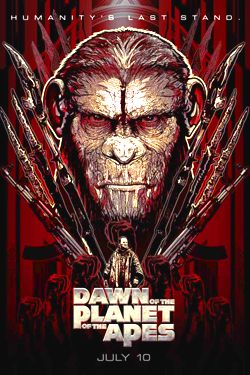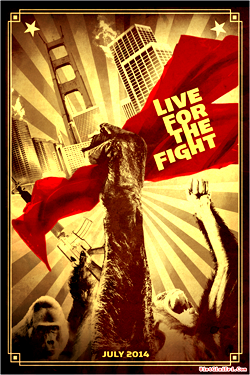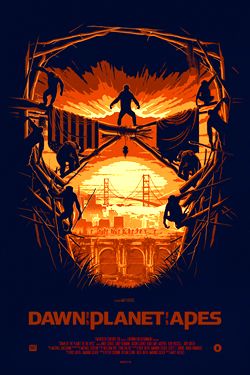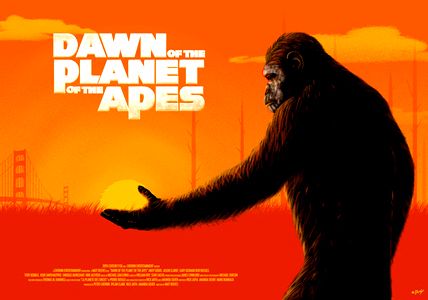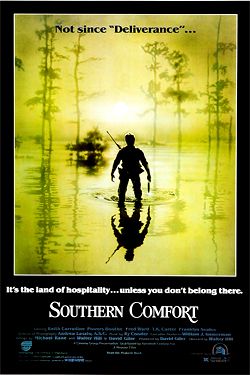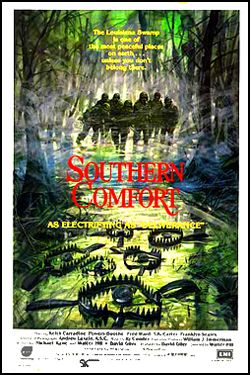Another film I rewatched for the 70s list. It's not one of my real favourites like the others were but a pretty great film nonetheless.
Year of release
1973
Directed by
Sidney Lumet
Written by
Waldo Salt
Norman Wexler
Peter Mass (book)
Starring
Al Pacino
John Randolph
Jack Kehoe
Biff McGuire
Barbara Eda-Young
Tony Roberts
Serpico
Plot - New York City, 1960, and the idealistic young Frank Serpico (Pacino) joins the New York Police Department full of enthusiasm. Excelling as a patrolman he finds himself transferred to the plain clothes division, where he quickly discovers that just about every single one of his colleagues is dirty, sharing money that they get from extorting criminals. When he refuses to accept his share of the money he finds himself ostracised by the department, becoming a pariah. He reports the rampant corruption to his superiors but is disheartened to find that nothing is done about it even as years begin rolling by. And as the years go by the attitude of his colleagues becomes ever more negative towards him as they begin to harass and even threaten him. When stories begin to swirl through the department that Serpico has agreed to testify at a commission into police corruption he finds his life in great peril.
I've always been fascinated and quite frankly confused about the attitude that those in law enforcement have towards cops who inform on their colleagues. When their job is to enforce and uphold the law it baffles me that they would hold such resentment towards their fellow officers who attempt to weed out corruption and crime within their own department. To me their just seems to be no logic to such acrimony towards honest cops and Internal Affairs. But that certainly is the case, at least if films and TV shows are to be believed. And
Serpico is another in that long line and arguably amongst the finest that cinema has to offer. The double standards and hypocrisy found amongst Frank Serpico's fellow officers is just incredible, he's treated with suspicion because he
isn't dirty! I mean how can you begin to get your head around the fact that he is told in all seriousness, “who can trust a cop who don't take money?”
Frank Serpico was a man who always dreamed of being a police officer. And I think that is probably an aspiration that many of us can relate to. Alongside growing up to be the likes of an astronaut or a cowboy it's one of those common dreams of childhood. And just as with those two aforementioned professions much of that desire is created by their portrayal in popular entertainment. No matter what age you are every generation has its own icons of law enforcement and crime solving, whether that be Columbo, Starsky and Hutch, Crockett and Tubbs, Joe Friday, Inspector Gadget, Kojak, Gil Grissom, Thomas Magnum, Jessica Fletcher, Jim Rockford, Steve McGarrett, Cagney and Lacey - all characters who are fine examples of the nobility and heroic nature that should be a part of the profession. And those are the ideals that Frank Serpico wants to live up to. So imagine how crushed he must have been to find that he was just about the only one. With his unruly mass of facial hair and a wardrobe seemingly more fit for Woodstock than a police station he certainly doesn't look like any of his fellow cops, and as it turns out he doesn't seem to think the same way either. He arrives with such enthusiasm for the job but quickly finds himself shocked at the sheer apathy of his colleagues and the politics involved. Everywhere he turns he just finds more and more corruption and more dirty cops, yet none of his superiors seem to care. He becomes so disillusioned by the whole thing. There's one small little moment that feels like a perfect snapshot to sum up his situation. Clearly returning from an undercover assignment he walks into the station dressed as a Hasidic Jew, complete with massive beard. It's a humorous moment that is done in such a matter-of-fact manner that it just highlights the sheer absurdity of Serpico's situation.
While the film is an examination of the kind of corruption that was running rife in police departments of the time, the heart of the film comes from the emotional journey that Serpico goes through as his dream job becomes a nightmare and he realises that he can't do the job that he loves. In addition to ruining his professional life the corruption that engulfs him also takes its toll on his personal life. Early in the film we see him establishing a normal life; finding a home to call his own, getting a dog and forming romantic attachments. He is unable to leave his job at the police station, taking the immense strain home with him and killing his relationship with two women in the process. The longer the film goes, without a single friend on the force to call his own, the more solitary a figure he becomes. Lumet frequently shoots Pacino on his own in wide shots just to highlight the exceptional isolation he finds himself experiencing. I also have to give some special mention to the production department for their part in helping to establish Serpico's character, with both his costume design and the set design of his apartment helping to set him very much apart from his contemporaries, showing him to be a much more artistic and cultured individual who has somewhat embraced the hippie movement.
Film Trivia Snippets - Serpico was shot in reverse order to aid Pacino in building his character's appearance. Al Pacino began filming with long hair and a thick beard and then for each individual scene his hair and beard were trimmed back bit by but until he was short-haired and clean shaven for the film's opening scenes. /// The film was originally set to be directed by John G. Avildsen of Rocky and Karate Kid fame until he was replaced just before filming due to creative differences with the producer. /// Serpico was not always envisaged as a star vehicle for Al Pacino. The original plan was for it to be another double act picture for Robert Redford and Paul Newman following Butch Cassidy and the Sundances Kid. Redford would have played Frank Serpico with Newman playing his lawyer friend David Durk (a character that was renamed Bob Blair in the final film and played by Tony Roberts). /// The film was shot exclusively on the streets of New York, utilising a total of 104 different locations spread across every borough of New York City except for Staten Island. /// After he decided to make the film Al Pacino invited Frank Serpico to stay with him at a house that Pacino had rented in Montauk, New York. When Pacino asked Serpico, "Why did you do it?" Serpico replied, "Well, Al, I don't know. I guess I would have to say it would be because... if I didn't, who would I be when I listened to a piece of music?"
Taking on the lead role of Frank Serpico is Al Pacino, who despite his standing amongst the majority of film fans and his undoubted talent I've never been completely sold on. When his name is in the credits I tend to approach with a sense of caution, fearful of being treated to another one of his hammy, larger-than-life, scenery chewing turns that for me personally can just bring the whole film crashing down around him. There's that old phrase, “Go big or go home”; well when Pacino goes big I tend to go home. There's no denying however that when Pacino is good he is very,
very good. And his performance here certainly falls into that category. He is excellent. He just attacks the role of Serpico with such incredible fire and conviction, really bringing this complex and conflicted character to life. He just convinces completely in the part; you absolutely believe 100% that he is a cop, and that he is Frank Serpico. As such it's hard to imagine anyone else taking on and inhabiting the role with such force and assurance. While Serpico is most assuredly Pacino's show he is given some solid back-up from a fine cast of character performers that includes the likes of Tony Roberts, John Randolph and Jack Kehoe.
Serpico is very much a film of its time, and I don't mean that in a negative way. Like many of its fellow thrillers from the same decade
Serpico shares that same gritty aesthetic and feel that was put to such fine use in police procedurals of the time such as
Dirty Harry and
The French Connection, and it is yet another example in a long line of great city movies to roll off the 70s thriller conveyor belt. And while the film actually begins in 1960 its story is one that very much captures the sentiment of the 1970s in terms of the negative attitude that American people had towards establishments such as the government and law enforcement. And with its tale of corruption rife within the police force the film shows why exactly Americans felt this way about those in charge. It's a sentiment that Pacino and Lumet would re-team to again tackle a couple of years later on
Dog Day Afternoon when Pacino's Sonny Wortzik takes on what feels like the entire New York Police Department and finds himself getting great support from the man on the street. While corruption within law enforcement is the main thrust of Serpico's story it does also find time to touch upon other touchpaper issues of the time such as racial tensions and homophobia.
While it would be nice to think that this was merely a piece of fiction to escape into and be enthralled by, the sad truth is that
Serpico is based on a very real man and a very real case of corruption. And with Sidney Lumet in the director's chair he ensures that the film adopts a docu-drama approach that plays into its true-life inspiration, heightening the realism and senes of authenticity. At times it really does feel like we're watching a documentary, with Lumet's camera feeling very kinetic and unstructured as it darts around in the wake of its characters. It comes across like Lumet doesn't know where the film is going and that he is reacting very much on the hoof to follow the action. Further enhancing the film's verisimilitude is its exceptionally minimal use of Mikis Theodorakis' score. In fact I don't believe that a single note of music is employed during the scenes set in police stations whatsoever. Instead the rare examples of the melodic, Italian-tinged score are reserved more for the personal aspects of Serpico's life
Conclusion - Powerful, incendiary and troubling,
Serpico is also able to emerge out the other side as a rousing and inspirational tale of one honest man and his courageous battle against widespread corruption throughout the New York Police Department. Much of that is down to the true heroism of the real Frank Serpico on which the film is based, but a tremendous and ferocious showing from Al Pacino and strong direction from Sidney Lumet certainly aid in creating such an experience. Engrossing.
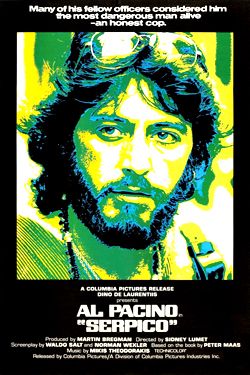
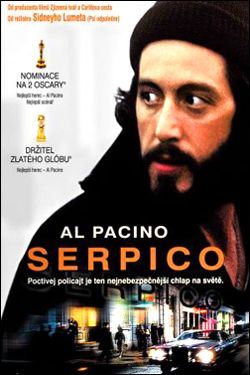
 Great to see you stopping by. And thank you.
Great to see you stopping by. And thank you.